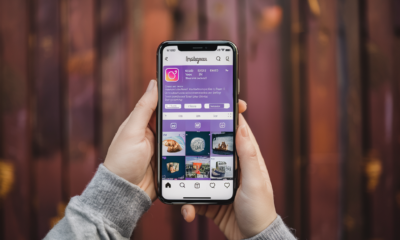Tech
Generative AI in Product Marketing: Hype vs Reality
Generative AI has been making waves in the product marketing world, but is it all it claims to be? Let’s find out whether the hype is worth it.

Generative AI in Product Marketing: Hype vs Reality?
“Generative AI has the potential to change the world in ways that we can’t even imagine. It has the power to create new ideas, products, and services that will make our lives easier, more productive, and more creative. It also has the potential to solve some of the world’s biggest problems, such as climate change, poverty, and disease.”
Bill Gates, Co-Founder of Microsoft
In light of this and many similar statements floating across the internet, a serious conversation must be had on generative AI. Ever since ChatGPT burst onto the scene, AI has progressed at an unprecedented rate. Only a year after generative AI swept the world on the text and images front, we saw OpenAI Sora come on the scene. An AI so powerful that entire commercials and even short films could be produced out of a simple text prompt.
With technology developing so fast and every tech industry expert investing in it, the chances of its failure seem impossible. In the minds of many in the product marketing space, generative AI is not on track to end up the way Cryptocurrency and the Blockchain did. The consensus right now seems to be that AI is a game changer and not just some hot air to sell a fad.
While the veracity of these claims remain challenged, one must be very cautious when investing in new technology. Much like cryptocurrency and virtual reality, the technology looks far better than it is. So, let’s put it to the test, shall we?
In this blog, we will discuss the impact generative AI has had on product marketing in the last year. The discussion will center around the upsides and downsides of generative AI and whether now is the right time to incorporate this technology into your product marketing strategy. Without further ado, let’s jump right into it!
The Impact of Generative AI in Product Marketing
Impact on Data Collection and Processing
The strongest case for leveraging generative AI in product marketing is its sheer data and business analysis abilities. A business could feed an AI bot its consumer behavior data and, in minutes, receive a comprehensive breakdown of patterns and possible marketing strategies based on those patterns.
Furthermore, product marketers can use AI chatbots to quickly retrieve data for planning purposes. For example, if a toy business plans to launch a new toy car in the coming year, they can use AI chatbots to determine how lucrative an idea is.
However, it is not all sunshine and rainbows with generative AI in data processing. One of the biggest problems currently with the internet is the overwhelming presence of insufficient data. Not to mention the fact that generative AI is slowly becoming a snake eating its tail. As AI uses data generated by AI to create more data, this leads to a vicious cycle where the entire AI database can end up filled with fictional-generated data.
Similarly, another big problem with generative AI is the fact that it is limited to outdated data. This is perhaps the worst case for product marketers, as they need the latest data to make convincing decisions. Data from a year ago is worthless for marketing purposes, given how fast trends change.
Impact on Productivity and Efficiency
Generative AI has revolutionized content production. AI art and text-based content have come under heavy criticism from the masses. Setting the question of ethics aside for a moment, it is undisputable that AI has untold potential for content marketing.
Product marketing is all about getting the product in front of eyeballs, whether that be through organic SEO search, social media advertising, or any other avenue. The goal is to boost the product’s visibility chances as high as possible. Generative AI can make a world of difference in this respect. We severely oppose entirely replacing human content marketers with AI, especially after the new Google crackdown on AI content. Even so, there is no rule against using AI to help create better marketing content.
With generative AI, content creation can accelerate to unprecedented levels of productivity. Thanks to AI’s superior research ability, articles that would generally take a week could be done in half the time. Writers could also bounce ideas off of generative AI and use it to refine their writing. Conversely, they could have AI write a rough outline and chisel it into the perfect marketing copy.
The point is that there are endless opportunities for generative AI to boost product marketing efficiency. The catch is that a skinny line needs to be skirted when using AI for marketing content. Search engines penalize excessive AI usage and even flag human-written content as AI due to the harsh filters. Then come the ethical qualms of using generative AI for art and video content, which is highly controversial and frowned upon by the internet.
This is to say that while generative AI does have an impressive impact on product marketing, its efficacy is far more lukewarm than you would be led to believe. Currently, the technology is only developed to supplement content marketing. Leaning on generative AI for anything beyond rudimentary market research and content outlines is not advised.
Impact on Marketing Campaigns
Generative AI is an incredible asset for planning and executing marketing campaigns. Businesses can configure AI or Machine Learning (ML) algorithms to sift through consumer data and suggest marketing campaign ideas. It can tell us to whom, when, and how to market a product and why said tactic would be effective.
Similarly, generative AI can analyze consumer purchase histories and broad trends to suggest new product ideas.
Again, The catch is that generative AI usually does not have broad access to the latest information. Businesses would have to provide the datasets from their side and ensure that the data is legitimate and not synthetic. Once these barriers are overcome, generative AI is a fearsome tool for brainstorming product marketing ideas. Businesses can also use generative AI to simulate a campaign and see how a customer would react by tuning the AI to play the role of a customer. By simulating campaign ideas in such a controlled environment, businesses can save a lot of money by investing in only the ideas that pass the simulation test.
Generative AI is not limited to mere words on images but can generate a customer persona that can be used for extensive experimentation. Businesses like Facebook already use AI and machine learning to create customer profiles and pitch content based on said profiles. Thanks to generative AI, this is now accessible to businesses of all sizes.
Conclusion
After this short yet thorough examination of the various boons and banes generative AI brings, it is time for the verdict. Given how limited generative AI is currently, there is a solid case to be made that the technology may not rise to the level of a game-changer.
Currently, businesses should invest in AI, but in a limited capacity. Generative AI should be relegated to a supplementary role only, and business processes need to integrate AI without becoming dependent on it. Generative AI should be kept to the ideation phase in product marketing. Human oversight and review are necessary to ensure content accuracy and SEO compliance.
Great care must be taken when leveraging AI-generated art, as it is a very controversial subject. Businesses would do well to only use AI art to generate content like infographics and tables rather than animations and commercials. Until the ethical issues are overcome and consumers are open to generative AI in art, it is best to avoid that whole mess.
Ultimately, the logical conclusion is that AI could be a game changer in the future, but now it is being hyped up beyond belief by the industry. We are at a point where there is even a debate on AI in accounting and finance. We should keep in mind that the tech industry has a vested interest in the success of AI. Thus, this new technology should be put under a microscope and treated with a healthy dose of skepticism. Do not jump on the bandwagon if you are unsure of where it is heading.
-

 Tech1 year ago
Tech1 year agoHow to Use a Temporary Number for WhatsApp
-

 Business2 years ago
Business2 years agoSepatuindonesia.com | Best Online Store in Indonesia
-

 Social Media2 years ago
Social Media2 years agoThe Best Methods to Download TikTok Videos Using SnapTik
-

 Technology2 years ago
Technology2 years agoTop High Paying Affiliate Programs
-

 Tech1 year ago
Tech1 year agoUnderstanding thejavasea.me Leaks Aio-TLP: A Comprehensive Guide
-

 FOOD1 year ago
FOOD1 year agoHow to Identify Pure Desi Ghee? Ultimate Guidelines for Purchasing Authentic Ghee Online
-

 Instagram3 years ago
Instagram3 years agoFree Instagram Auto Follower Without Login
-

 Instagram3 years ago
Instagram3 years agoFree Instagram Follower Without Login































